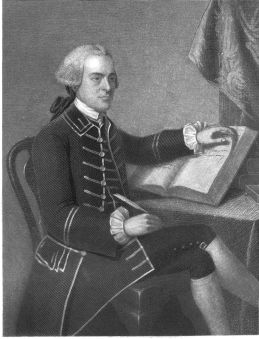[John Hancock to Joseph Warren]
“My Dear Sir, Sunday Morng. 18 June 1775. Philada.
I intended writing you a long Letter, but am prevented, by my Attention to the orders of Congress in Dispatching an Express & writing to Govr Trumbull on matters of infinite Importance, in short from my Situation in Congress I have great Duty to Do, but I will persevere even to the Destruction of my Constitution. I am under a strict Injunction not to Communicate the Doings of Congress, but two or three Circumstances having Taken place in Congress which Affected our Army, induc’d me to Ask Leave to mention them, which I obtain’d, with this positive Direction, that at present they be not mention’d in the News papers, which you will please to observe.
The Congress have Appointed George Washington Esqr. General & Commander in Chief of the Continental Army, his Commission is made out, & I shall Sign it tomorrow, he is a Gentn. you will all like.”
Sources: Letters of Delegates to Congress: Volume 1 August 1774 – August 1775, John Hancock to Joseph Warren, June 18, 1775 in Papers of the Continental Congress, Washington, D.C.: Library of Congress, Vol. I, p. 508. The illustration is a 19th century engraving by Drake of John Singleton Copley’s portrait of John Hancock. The original oil painting is on display at the Boston Museum of Fine Arts in the American Wing.
Commentary: John Hancock informs Joseph Warren of the appointment of George Washington as generalissimo of the newly constituted Continental Army. Hancock was writing in his capacity of president of the Second Continental Congress to Warren, the president of Massachusetts Provincial Congress. The relation between the two was multifaceted – fellow St. Andrew’s Lodge Masons, Boston Sons of Liberty, and probably personal friends. Unbeknownst to Hancock at the time he penned this express to Boston, Joseph Warren had been killed the day prior at the Battle of Bunker Hill and his remains lay on the British-occupied battlefield. John Hancock was writing to a dead man.
Had Warren survived the battle he would have been in a favorable position for commissioning as a senior officer in the Continental Army under George Washington’s command.

 Follow
Follow